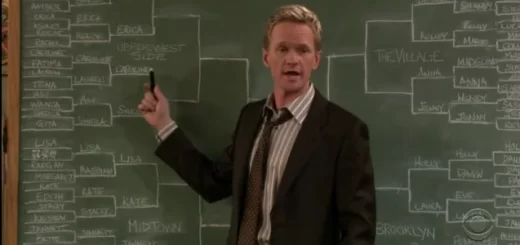The Mummy: Tone-Deaf and Dumb, by David Bax
Back in 2008, when Marvel debuted their cinematic universe with Jon Favreau’s Iron Man, they waited until after the credits to introduce Nick Fury and the “Avengers Initiative.” Universal, on the other hand, wastes no time setting the stage in Alex Kurtzman’s The Mummy, the analogous first entry meant to launch their own line of interconnected properties. After the familiar studio logo, a second one appears, touting that this film belongs to the “Dark Universe,” leaving no doubt as to how the priorities have been organized. Though Kurtzman (along with the other five credited writers) occasionally locate some moments of adrenalized gothic-contemporary fun, The Mummy is more a component than a story or, God forbid, a work of art.
After a tidy prologue narrated by Russell Crowe and accompanied by mostly silent flashbacks of an ancient Egyptian princess named Ahmanet (Sofia Boutella) slaughtering her family before being interrupted in the middle of a ritual to bring the god of death to life and then, as punishment, mummified alive and buried in a tomb 1,000 miles from her homeland, we join our protagonist, Nick Morton (Tom Cruise), in the middle of Iraq, where he and a cohort (Jake Johnson) accidentally uncover Ahmanet’s sarcophagus. The whole cast then relocates to London, where Ahmanet hopes to find the artifacts necessary to complete the ritual she started 5,000 years ago, which were long since stolen by Christian crusaders.
Along with the fact that the first modern day images we see are of Iraqi insurgents destroying antiquities, the pillaging crusaders plot point provides an opportunity to explore how one culture often lacks respect for the history of other cultures. Of course, The Mummy thoroughly ignores that opportunity. The entire early section set in Iraq, in fact, is one long, Bruckheimer-esque refusal to engage with the political ramifications of what’s transpiring on screen. How tone deaf do you have to be to use a drone strike on a Middle Eastern village as a thrilling, stunt-stravaganza action set-piece? The comparisons to Bruckheimer (or his chief graduate, Michael Bay) don’t end there. It’s as if every frame has a sign posted at its perimeter that says “You must be this loud, this expensive or this buff to enter.” Even Johnson, as the comic relief, is broad-shouldered and ripped. The prevailing aesthetic borders on fascist.
Of course, Jerry Bruckheimer has been around for a long time and, before there was Bay, there was Cruise and Top Gun. Now, more than 30 years later, Cruise has returned to the Maverick archetype, the cocky asshole whom the movie insists doesn’t need to be redeemed. Morton is a soldier but, in his spare time, he’s also a smuggler and a thief. There’s not much more than that to his character. Meanwhile, his foil/love interest, archeologist Jenny Halsey (Annabelle Wallis), fares even worse. She’s mostly there to be the wet blanket straight man to Morton’s irrepressible (and irritating) rapscallion. (Whaddaya gotta get so upset for?! We was just tryin’ to steal these here precious artifacts!) Only Boutella and Crowe as Dr. Jekyll (he’s the Nick Fury) appear to be having any actual fun, preposterous though their characters may be, instead of merely hitting their marks.
Once the story moves to London, things do improve, for a time. A plane crash sequence that clearly cost a lot of money jolts the picture to life and, when The Mummy is actually allowed to be a horror movie, there are joys to be had. Ahmanet creates an army of decomposed corpses to aid her. Both the scenes of her sucking the life out of her soon-to-be minions and a sequence in which one of them continues chasing Morton and Jenny through the woods even as pieces of him keep getting ripped off are legitimately ghoulish fun. There’s a long enough stretch blending spooky imagery and high-tech action that the awfulness almost begins to fade from memory—Johnson even turns into Griffin Dunne’s character from An American Werewolf in London for a spell! But Kurtzman and company ultimately lack conviction and the most promising elements, like the suggestion that Morton will become Ahmanet’s sex slave-Renfield, go drastically underexplored.
That’s because to dive too deep into any idiosyncrasy would risk The Mummy being seen as an actual movie unto itself. Instead, it resists distinction at nearly every turn, culminating in a climax that offers nothing in the way of emotional resolution or catharsis. All you get at the end of the movie is calculated functionality and an invitation to the Dark Universe that makes it seem more like a chore than a party.
































“The prevailing aesthetic borders on fascist.”
Oh, come on. The fascists actually put a lot of thought into aesthetics, which many films have made use of. This isn’t one of them.
I see what you’re saying but the insistence on everything on screen being the biggest possible version of that thing, including the humans, feels like that mindset to me.
– David